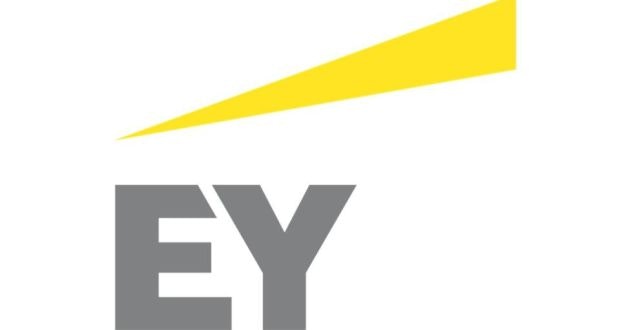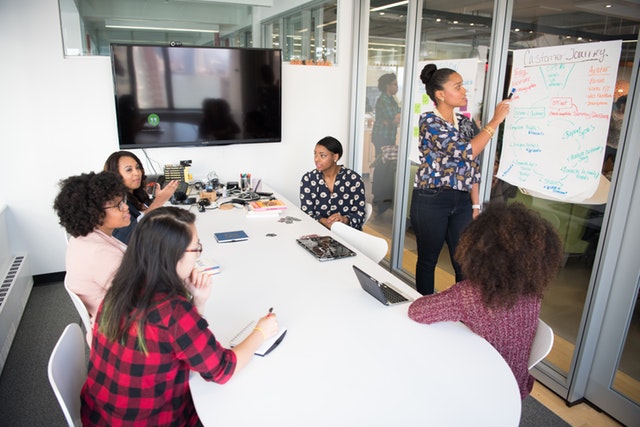EY Recruitment & Application Process & Interview Questions (2026)
All products and services featured are independently selected by WikiJob. When you register or purchase through links on this page, we may earn a commission.
- EY Application Process – Learning About You
empty
empty
empty
empty
empty
empty
- EY assessment Test – Learning for a Changing World
- The EY Job Simulation – Learning on the Job
- EY Assessment Day – Learning in Person
empty
empty
empty
empty
empty
empty
empty
empty
- Frequently Asked Questions
EY (Ernst & Young) is one of the Big Four professional service firms, alongside KPMG, Deloitte and PwC. Because of its size, power and influence, it has a highly competitive application process.
Even as a talented candidate, you will need to be fully prepared to have a good chance of success.
EY has recently adopted a four-stage application process. The steps, in EY’s terms, are as follows:
- Learning About You
- Learning for a Changing World
- Learning on the Job
- Learning in Person
In this article, we will go through what each of these stages of the EY application process means and what you will need to be prepared for.
EY Application Process – Learning About You
It starts off relatively straightforward. The ‘learning about you’ stage is the EY application process.
For the most part, it’s basic information: some personal details, which programme you’d like to apply for, which service line, which sub-service line and which location.
Programme
Here you select whether you want to apply for a EY graduate scheme, summer internship, industrial placement or deferral programme.
Service Line
Decide which part of the Ernst and Young company you want to work for. The options include actuarial, assurance, consulting, tax, technology and transactions.
Sub-Service Line
Within each service line is a couple of possible specialisations.
For instance, sub-service lines to the technology service line are ‘cyber security’ and ‘IT risk assurance – data analytics’.
Select the one that lines up best with your interests, aspirations and skills.
Location
This is where your office will be located. For certain combinations of programme, service line and sub-service line, there may only be a single location available.
So if, for whatever reason, you are unable or unwilling to move – or if you are only interested in one location – make sure EY has roles there beforehand to avoid disappointment.
Entry Requirements
In this section, you must confirm that you fulfil the basic entry requirements, eg a certain type of degree. These can change depending on your role and programme; check them before you apply.
You will also need to confirm that you have the legal right to work at the location you have applied for, declare your nationality, and state whether you have any connections with current EY clients or staff.

Equal Opportunities
Here, as part of EY’s diversity policies and programmes, you are asked to give answers to more personal questions.
EY state that “the information provided does not form part of our selection procedure and you are not obliged to answer these questions”. It is entirely up to you how many, if any, questions you answer.
You are asked about:
- Gender
- Ethnicity
- Sexual orientation
- Religion or belief
- Age group
- Eligibility for free school meals or household income support
- Type of school you attended
- Parents' qualifications
- Parents' occupation
- Any time spent in care
- Refugee or asylum status
- Any time spent as a carer
And that’s it. Just plug in your details and send it off.
EY will get in touch shortly if you are selected to progress to the next stage.
Practice EY Application & Interview with JobTestPrep
EY assessment Test – Learning for a Changing World
In stage two, you will tackle case studies, multiple-choice questions and an online test based on the theme of how technology is changing our world and the way people work.
EY assessment is about your natural strengths around the theme of technology in the workplace.
The EY test should take around 60 minutes (Ernst and Young apprenticeships candidates take a shorter version of the test). Although it is not timed, time is likely to be a factor in your score.
Many candidates who have completed this stage have reported that it is difficult and quite different from other aptitude test formats.
EY recommends that before you begin, you have the following at the ready:
- Laptop or desktop computer (rather than a smartphone or tablet)
- Time and space to work undisturbed
- A calculator, a pen and some paper
During the hour, you will be tested on a variety of skills from numerical reasoning to verbal reasoning to situational judgement. The test contains around 28 questions, followed by a number of situational judgement questions.
The EY test involves scrutinizing a number of videos, each around two or three minutes long, written information in the form of articles, letters and so on, and data tables, graphs and figures.
To do this, begin by identifying the steps you need to take to solve the problem.
What’s the question? What figures will you need to solve the question? How can you find those figures using the information provided?
Once you’ve identified the steps needed, you should be able to quickly do the calculations while ignoring any irrelevant and distracting information.
After the EY aptitude test, you should receive some personalised feedback indicating what you did well and what you could improve on. These traits are measured based on your ability to be an ‘agile learner’, ‘networker’ or ‘digital architect’.
You will soon be told if you have performed well enough to advance to the next stage.
The EY Job Simulation – Learning on the Job
For the next stage, you will be asked questions based on a series of scenarios that you may face in your role at EY. You will be asked to film some of your answers.
This EY job simulation has no time limit but must be done in a single sitting.
It will take roughly 45 minutes, so make sure you have that time set aside, free from distractions. There are 14 questions to complete.
EY recommends the following:
- Use a laptop or desktop computer, and have the latest version of Google Chrome installed.
- Ensure that your microphone and webcam are both working and clear.
- Check the lighting in your room and adjust it, so that you are clearly visible and your background isn’t distracting.
- Make sure that your internet connection is stable.
EY also suggests that you dress as if it were an in-person interview.
Also, remember that you will get a practice round for your video answers, so don’t stress too much about getting it right on the first try.
This stage will begin with a series of multiple-choice questions and job simulation tasks.
The multiple-choice questions are broadly along the lines of situational judgement assessments. That is, you will be given a scenario that could feasibly occur during a workday and will have to select how you would respond.
This could be to do with a difficult client or a conflict between colleagues or team members.
It could be that an urgent decision is needed that would normally be made by a senior colleague or manager.
It might test you ethically, asking questions about whether it’s OK to cut corners for various reasons.

You might need to organise, prioritise and respond to a frantic email inbox, while also completing tasks like compiling a report from data that needs to be with your manager within the hour.
One of the best places to start your preparation for these kinds of questions is to look at EY’s values.
EY states that their three core values are:
- People who demonstrate integrity, respect and teamwork
- People with energy, enthusiasm and the courage to lead
- People who build relationships based on doing the right thing
Begin with these, but also go through EY’s website. What kinds of projects does EY support? What kinds of values does EY promote in articles on its website? How does the company approach cultural issues?
Make some notes about the values that EY hold and keep them next to you. For any situational judgement question, make sure that you are upholding those values in your answer.
The main skills being tested here are:
- Your ability to stay calm under pressure
- How you prioritise
- Whether you can complete day-to-day tasks accurately and quickly
- Your ability to remain professional and polite at all times
You will receive some more detailed feedback after this stage.
If you are applying to an apprenticeship programme, you will be invited to a telephone interview at this point.

If you need to prepare for a number of different employment tests and want to outsmart the competition, choose a Premium Membership from JobTestPrep.
You will get access to three PrepPacks of your choice, from a database that covers all the major test providers and employers and tailored profession packs.
EY Assessment Day – Learning in Person
This stage is called an EY Experience Day; you will attend an assessment centre at one of a few locations in the UK.
You’ll need to display all the skills you’ve shown in the previous stages in person, under pressure and in competition with other candidates.
The EY assessment centre success rate varies depending on particular vacancy availabilities and candidate performances but only around 10% of applicants get this far, so it is already an achievement.
If you’re selected to advance to this stage, you will be contacted and invited to an assessment centre at a specific location on a specific date. You will have 48 hours to respond to this, accepting the invitation or declining it. Be warned that not responding to the invitation counts as declining it.
You will also be assigned some preparatory work relating to some of the activities on the day. It's very important that you complete this work in good time.
The basic details about the EY Experience Day :
- Begins at 9 a.m. and ends at 4:30 p.m.
- Lunch and refreshments are served, but not breakfast.
- You do not need to bring anything other than your prep work along with you.
- An EY travel partner will assist you in arranging transport to the centre.
More specific details will be sent to you closer to the date, as they can depend on the particular day and venue being used.
On the EY experience day, there will be a mixture of aptitude tests, interviews and interactive sessions.
What you will actually face will depend on the programme, track and sub-track you’ve applied for, the location, and what those running the assessment day have chosen to use.
As such, it’s not possible to give you a full, accurate run-down of what will happen on your EY assessment day.
Instead, below is a selection of example activities that recent candidates have reported being set during their assessment day, to give you an idea of what to expect.
Prepare for EY Application & Interview
EY Aptitude Tests
It is highly likely that you will be asked to sit some aptitude tests in-person on the day. This is partly an anti-cheating measure.
Your results here will be compared with your earlier online test results from stage 2 and/or 3. If the two are wildly different (potentially implying that someone else took the online test for you), Ernst and Young may consider your EY application at risk of rejection.
Partner Discussion
Often, the pre-assessment centre work you will be asked to do is to prepare one of three topics for discussion.
For each topic, you are also given three sub-questions as prompts for what you should think about.
For example, one candidate was asked to choose between:
1. How can businesses create value in the 21st century?
- How can value be defined?
- What future challenges do you foresee?
- How can your service line support businesses in creating future value?
2. What’s the secret to business longevity?
- Which factors are most crucial in securing longevity?
- What future developments should organisations prepare for?
- How can your service line help to promote business longevity?
3. How do you make an entrepreneur?
- What knowledge, skills and characteristics are needed?
- Are individual qualities or external opportunities more important?
- How could your service line support entrepreneurs?
As you can see, these are broad and wide-ranging topics.
The intent here is for the partner to get an insight into how you think about business, what you think is most important, and how you approach business development.
To prepare for this task, break your chosen topic down into smaller questions, like the prompt questions.
For instance, for the first question, you might want to consider:
- What does ‘value’ mean for a business? If ‘value’ has multiple meanings (stock value, cultural value, social benefit value, etc.), then which of these should be the primary goal? How do they work towards each other, or do they sometimes conflict?
- What does it mean to be a ‘21st-century business’?
- What are some examples of companies that create value in the 21st century? How do they go about doing that?
- Answer the ‘how’. What is the relationship between the long-term, abstract goals you’re championing and the concrete, day-to-day business steps needed to meet them?
This can also be a fantastic opportunity for you to gain some business insight from a partner.
Be sure not to treat this like a formal interview or interrogation – aim to have an engaging discussion; seek the partner’s opinion and ask them questions.
EY Interview
There is, also, a formal interview with a partner. Often, this will follow the previous partner discussion, merging the two.
This EY interview is typically competency-based and will ask many of the usual questions, covered below.
Preparing brief answers for them should give you plenty of scope to tackle whatever you face on the day:
- Why EY?
- Why this service line/sub-service line?
- Why this location?
- What are your strengths?
- What are your weaknesses?
- How do you structure your time?
- Where do you see yourself in 5/10 years?
- How does EY create value for its clients?
- What do you see as your place in a team?
- Are there any recent events that might affect EY and the industry?
- What do you see yourself doing in your first year at EY?
- Tell me about a difficult experience you’ve had and how you worked through it.
- What is your proudest accomplishment?
Try to back up your answers with concrete examples.
If you’re talking about your role within a team, give an example of a project on which you held that kind of role.
When talking about your strengths, say what experience you’ve had that proves and justifies that strength.
Remember that anyone can say whatever they like, but not everyone can back it up. And being able to back it up is much more impressive in an interview.
The best way to prepare is by doing as much background research on EY interview questions as possible.
Click here to learn more about JobTestPrep, the easy online interview training system. You get real questions, winning answers and expert advice – all specific to your target job.
Prepare for EY Application & Interview
The EY final interview success rate will vary depending on vacancy availability and how you perform on the day. However, the fact that you are at this stage means you have impressed the company and as long as you prepare adequately for the interview, you should be in with a good chance of a job offer.
Prepare for this like you would any other interview and try not to be too nervous that you’re being interviewed by a partner.
Take it as a compliment: a partner’s time is very valuable to EY, so if they’re using this time to interview you, it’s because they think you could be a worthwhile investment. You’ve done many things right to get to this stage.

What Is the Dress Code at EY?
As with any interview, it's important to pay attention to the organisation's dress code and to dress accordingly to make a good impression.
In general, the EY dress code is business casual, although EY requires more formal business attire for client meetings. If you are visiting client premises, you are expected to dress according to the on-site dress code.
The EY dress code may vary from one office or department to the next but for the sake of an interview it is better to be overdressed rather than underdressed.
Interviewers will not be offended if you are more formally dressed than you need to be, though they will likely view it as unprofessional to dress informally for interviews (and work environments) where roles involve a lot of client interaction and/or a formal appearance.
Inbox Prioritisation
Similar to many work-based assessments, this exercise will have you prioritising meetings and other day-to-day activities.
You will be given eight emails in an inbox, each asking you to do something like attend a meeting or a networking event, write up a report or blog post, visit a client and so on.
You must select five of these activities to action, and justify your reasoning one-on-one with an assessor.
Some tasks may be important but less time-sensitive, so it might be sensible to put them off for now. Others might be less important but very time-sensitive.
In general, keep in mind EY’s core values.
Attending a client meeting, for instance, should almost always be prioritised because putting off or delaying meetings can leave a poor impression on clients.
Blog posts, by contrast, could probably be done later on.
Company Case Study
For this exercise, you will be given a pack of information on a company that isn’t doing well and has come to EY for advice on what to do.
You will usually be paired up with another candidate and will have 10 minutes to jot down your solutions.
You will then have a 5-minute conversation with an assessor about your plan. Your partner will also deliver their opinions to the assessor in their own 5-minute slot.
Afterwards, you will both talk about the plans with the assessor together.
This is about employing all your skills to come up with a solution. With only 10 minutes, your idea need only be broad strokes.
Begin by identifying the problem and go from there.
Group Discussion
In a group of other candidates, you will be given a broad discussion topic or problem to consider together.
You will be given 15 minutes to discuss this as a group, and then 5 minutes to write up your thoughts and outcome in an ‘email’ to the assessor.
The topic can be almost anything, but an example that one candidate faced is:
EY wants to help young people prepare for the world of work. How can the company do this?
You don’t have long to discuss this when there’s a number of you with opinions and insights.
The first step should be to quickly narrow down the question into something more concrete. What does it mean to ‘prepare young people for the world of work’? More business-specific education? More hands-on work experience? More or better opportunities for internships? Clearer paths into and through companies?
When you have decided on that, the next step is to figure out the issue. What do young people currently lack that is preventing them from being properly prepared for work as you understand it?
Then, you can work on proposing a solution. Perhaps this could be an EY graduate scheme that offers shadowing and work experience for more 16-year-olds. Or having EY representatives visiting schools and giving guest business lectures.
Whatever you decide, try to make sure it is concrete and related to the question.
For all group exercises like this one, you need to find a good balance between being a cohesive, amiable team player and showcasing your skills.
It’s a tough juggling act of being both a collaborator and competitor with your fellow applicants. So, try and keep the following points in mind:
- Be heard, but don’t be overbearing – Make sure you get your chance to speak, but not to the detriment of others who’ve had less chance. A great skill to show in group work is to lead discussions by bringing other people in.
- Listen – It’s tempting when you’re nervous to just think about what you’re going to say, formulating the words in your head and not listening to others. Being a good team player is also about listening to others and building from their ideas.
- Stay on topic – Try to notice if you’re slipping into a tangent and bring yourself back on track. Politely try to do the same if others are going off on a tangent as well.
EY Assessment Centre Tips and Advice
There’s only so much you can do to prepare for an assessment centre, and that’s by design, but here are a few things worth bearing in mind:
- Do your research on EY. Download the latest annual report and note down the key points from that. Read EY's website. Take a look at its large clients. Familiarise yourself with the kind of work EY does and demonstrate a decent understanding of the company.
- Look ahead. EY is successful because its leaders and workers look to the future. What coming developments might pose a challenge to the way things are done? What might provide excellent opportunities? Being aware of where the industry is going in the coming years will be highly impressive.
- Stay hydrated. Water, tea and other refreshments will be offered at the assessment day. This is not just a courtesy; you'll likely perform better if refreshed.
- Be professional and polite at all times. It’s very easy over the course of a stressful day to slouch back, get frustrated or be unprofessional. Remind yourself that you’re there to impress. Be polite and friendly to other candidates and the assessors, stay enthusiastic, and remain business-like, particularly when on-task.
Provide your full name, contact information, and employee or candidate identification number.
Declare any current or past health conditions or medical issues that may affect your ability to perform your job or pose a risk to others. Mention any ongoing medications or treatments, if relevant.
Disclose any pending legal issues or litigation you are involved in. Report any prior convictions, arrests, or charges.
As an employer, EY gets glowing recommendations from employees – and being part of a global network of happy staff is just one of the advantages of working at EY.
Once you get through the thorough recruitment process and you are getting started in your career at EY, you will be able to join networking groups and be introduced to opportunities for learning and development.
As one of the Big Four financial businesses, EY offers generous salary packages including matched pension contributions, financial incentives and support, useful benefits including gym memberships and childcare and a world-beating level of development and training.
The EY induction process is designed to ensure that every new starter gets all the information and preparation they need to launch into their new career.
Once you have completed the application process and have negotiated your salary, received your offer letter and your start date, EY has prepared an extensive and immersive induction process that can be completed online.
This uses a global onboarding technology portal full of all the information you will need about your role, your development and training, and what you are going to do when you start. It is also where you will be able to network with your peers and take part in ongoing orientation programs.
The first stage of the EY application process is an online application form, which is titled 'Learning About You'.
This application form includes basic information like your personal details, contact information and a space to upload your customized and bespoke CV.
You will also need to indicate which program you are applying for, whether it is an internship, graduate program or industrial placement.
You will be able to choose an area and a specialism, whether you want to go for a career in assurance, actuarial, consulting, tax, technology or transactions.
Your preferred work location will need to be confirmed, as will your right to work and that you meet the entry requirements.
This is a simple online application form that should not take too long to complete and is the first step in your future career with EY.
If you want to take an internship opportunity at EY, the application process is straightforward but thorough.
The first step is to complete an application form for the position that you want. Internships are available in most areas of the business, and you will need to select the one that interests you most.
Once your application form has been screened to ensure that you meet the minimum requirements, you will have to complete some online assessments, including a personality test and a numerical reasoning test.
When you have completed this, you will receive personalized feedback and if you are successful, you will be asked to complete a job simulation test.
This is a combination of situational judgment and case study questions, where you will need to answer some on video, and some through ranking as well as written responses. Again, you will have personalized feedback from this stage.
The last part of the application process for an internship at EY is the EY Experience Day, with various exercises and activities that the recruitment team will use to assess your soft skills – like how well you communicate and listen, what your leadership style is, and how you deal with working in a group to solve problems. This is where you will take part in partner interviews.
The specific skills that you will need to apply for a role will depend on the job requirements, whether that is qualifications or experience in things like accounting or tax.
However, EY is particularly looking for passion, energy and talent from its new hires, as well as creativity, emotional intelligence, collaboration and complex problem-solving.
When you are looking at the job description for the role you have applied for, you will be able to see what essential skills, knowledge, qualifications and competencies EY is looking for in a new hire. You can use this to highlight your achievements in your CV and throughout the application process.
During the application process, you will take part in formal interviews, usually with a partner. These will be the types of questions that you would expect in a face-to-face interview, as a combination of competency-based and motivational questions that you will need to answer.
The way you answer these questions will depend on your individual experiences and knowledge, but some of the questions you might expect from the EY interview include:
- Why did you choose EY?
- What are your strengths?
- What do you see yourself doing in your first year at EY?
- What is your proudest achievement?
When you are getting ready for your interview, think about the skills and competencies that you need to have to be considered for the role – and prepare some examples from your previous experience so that you are ready to describe why you are a desirable choice for the role.
You can expect to be quizzed on your knowledge of the company and of the wider financial industry. You want to show the partner that you are invested in the business, know the company goals and values, and are going to be an asset to EY in the future.
Make sure that you get enough rest the night before, eat a healthy meal and stay hydrated. If your interview is during the EY Experience Day, you will be provided with lunch and drinks throughout the day so take advantage of that.
Remember that you want to make an immediate good first impression – so dress smartly, make sure you look neat and tidy and arrive early.
The application process for EY is thorough and getting to the next stage can take some time. Previous hires have reported that it can take anywhere from a few weeks to six months or more to get from the initial application to a job offer and a start date.
The interviews themselves at EY are usually a standard length, between 30 to 45 minutes, but they do tend to take place during the EY Experience Day – a full-day assessment center held at one of the offices.
You will usually hear about how you did in the interview within 7 to 10 days.
The number of stages in the EY hiring process will depend on the role you have applied for, with certain positions needing more or less testing or interviews.
In general, the EY hiring process looks like the below:
- Online application form
- Aptitude testing
- Job simulation test
- EY Experience Day (assessment center)
The tests that you will need to take during the EY hiring process will depend on the type of role and the business area for which you have applied.
There will be online aptitude tests, including numerical reasoning and verbal reasoning in most positions. You can also expect to complete a situational judgment test, where you will need to think about work-based scenarios.
There is also an untimed job simulation test, where you will need to complete tasks that you might have to face when you are in the role.
At the EY Experience Day, you might be asked to complete more aptitude tests (like the ones taken online at the beginning). You will also be assessed through exercises and activities such as making a presentation, inbox prioritization and group work.
The length of time it takes to get an offer letter from EY does depend on the role, the office and the workload of the recruitment team.
When you complete the interview process and you are successful, you will need to discuss and finalize a compensation plan before the final offer is sent out.
The letter is usually sent out within two to three days, but it can take up to 14 days while everything is being put in place for your start date.
The number of interviews that you will have to take when you apply to work at EY depends on the role for which you have applied.
In most cases, there is only one face-to-face interview that takes place at the EY Experience Day, where you will have to answer questions from a partner to ensure that you are what the role needs and have the knowledge, experience and skills to be successful in the future.
For more senior roles, you might need to take part in other interviews, like ones with a panel of partners or senior executives.
The question 'Why do you want to work at EY?' is likely to be used in your interview – so you can spend some time thinking about how you want to answer it.
This is a question that draws out your personal feelings about the job, but there are a few things that you might want to consider in your answer.
First, as a Big Four accounting firm, EY has a strong brand that is well regarded – and that is something that an aspiring financial professional would want to get involved in.
You might want to think about how your career goals align with the needs of the company and how you want to grow and develop in the role to make more profit while growing and developing the business.
This is a question where you should think about how the job you have applied for works in the grand scheme of the business, through the company in particular and into the wider financial industry – EY is a firm with a solid vision for the future and through your research you should be able to think about how your skills will align with the business.
As one of the Big Four accounting firms in the world, Ernst Young (EY) is a destination career for many graduates and experienced applicants.
Always looking to recruit new talent, there are many reasons why you should join EY – and not just because it would look good on your CV.
The generous salary is matched by performance-based bonuses – including a £10,000 referral scheme for successful new hires. Alongside this, there are several benefits including travel insurance, gym memberships, childcare schemes and medical support with a focus on mental health.
Working at EY allows you to be involved in networks and groups of like-minded individuals. With ever-expanding opportunities for learning through the business with mentors and training, EY is the perfect place to launch a career in finance.




